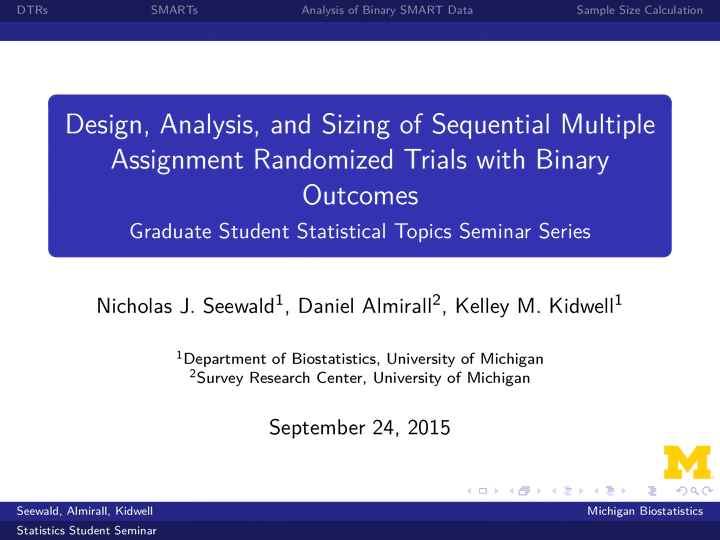Design, analysis, and sizing of sequential multiple assignment randomized trials with binary outcomes

Abstract
Clinical interventions frequently take the form of a sequence of treatments. Each component in the sequence is chosen by the clinician, who is able to make decisions about a future treatment based on patient characteristics. These multi-stage interventions, called Dynamic Treatment Regimes (DTRs), can leverage information collected over the course of the intervention to tailor the sequence to each individual patient. For some research aims, such as the development of a high-quality DTR, a standard two-arm clinical trial may not be appropriate. A Sequential Multiple Assignment Randomized Trial (SMART) is one method that allows for the construction of effective DTRs. We review principles for designing and analyzing these trials, and extend them to ongoing work related to SMARTs with binary outcomes in which the primary aim is to compare two embedded DTRs. We conclude with a discussion of sample size for such SMARTs, and highlight an online sample size calculator built with the goal of empowering clinicians to consider SMART designs more often in practice.